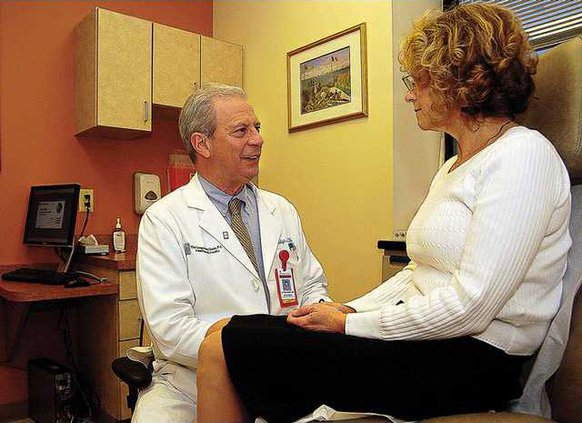0927marleraud
Listen as Dr. Philip Marler talks about his upcoming deployment to Iraq.At age 59, Dr. Philip Marler is being deployed to Iraq for the third time.
An internal medicine physician at the Longstreet Clinic in Gainesville, Marler has served in the Louisiana Army National Guard for 29 years. He faces mandatory retirement from the military next year, and he said he was hoping his time would run out before he got sent to Iraq again.
No such luck. Marler has been ordered to report to Fort Benning on Oct. 15 for orientation training before shipping out to Kuwait. He won't know until then exactly where in Iraq he'll be going.
He does know that the country will be different from when he saw it last.
Marler has a unique perspective on Iraq because he first experienced it under the Saddam Hussein regime. During the Persian Gulf War, he was deployed to Iraq as part of Operation Desert Storm in early 1991.
He was deployed again in early 2004, after the fall of Saddam, just as Iraq was attempting to hold its first democratic elections.
"There was a lot of violence because (insurgents) were trying to keep people from going to the polls," he said.
The most harrowing part of his journey was riding in the 500-mile convoy from Kuwait to the field hospital where he would be stationed, between Baghdad and the Iran border. Many vehicles had been hit by roadside bombs along that route.
Marler made it to his destination safely, but during the three months he served there as a military physician, he frequently heard bombs and gunfire in the area.
He expects a much calmer environment this time, based on information from a trusted source: His son Scott, 30, already is in Iraq serving in the active-duty Army.
"He's with the 101st Airborne (Division) in an outpost near Balad, and he says things are extremely quiet," Marler said.
The downturn in violence is attributed to last year's "surge," an infusion of additional troops that helped drive out many of the terrorists and militant groups.
"So far it seems to be working," said Marler. "(Gen. David) Petraeus (the former commander in Iraq) knew what he was doing. But it'll take a long time to rebuild the country. I guess we'll know in 10 or 15 years what our legacy is going to be."
Marler said he believes his experiences in Iraq have made him a better doctor.
"I'm a general internist. I don't do trauma in my everyday life," he said. "But now I feel more comfortable in my ability to stabilize trauma patients and get them to a higher level of care."
During his upcoming 90-day stint in Iraq, Marler's job will be the same as it was last time. He will treat military personnel, contractors and civilians for illnesses and accidental injuries. And if a soldier is brought in with severe battle wounds, he has to help keep the patient alive long enough to be airlifted to the full-service military hospital in Germany.
"I don't expect nearly as much significant trauma this time (because of the decrease in violence)," he said.
Ironically, when people do come in with life-threatening injuries, he'll be able to treat them more effectively.
"I'm going to be with a different medical support unit, with about 200 people," he said. "It will have more sophisticated equipment and will be able to do a lot more than the company I was with before. Last time, we were operating out of tents and could provide only basic care."
Marler expects he won't be back in the States until late January or mid-February. His son, Scott, is scheduled to come home from Iraq in December, so he hopes they'll be able to manage a brief reunion while they're both in the country.
He said he'll miss his other two grown children, wife Joan, and his colleagues and patients at Longstreet.
"We've just added a new physician, so she'll probably take the lion's share of my patients since she doesn't have a heavy workload yet," he said.
This is actually the third time in five years that Marler has been deployed, but in the most recent case he didn't have to go overseas. In September 2005, he was sent to his home state of Louisiana to help the area recover from Hurricane Katrina.
Marler said he could have left the National Guard long ago, but he didn't see any advantage to doing so.
"I could have been called back to active duty at any time within three years of leaving," he said. "But I wanted to stay. I think I've accomplished a lot and learned a lot, especially about leadership."
But he admits it will be a relief not to have the possibility of deployment hanging over him. "This (tour of duty) is kind of my last hurrah," he said.

